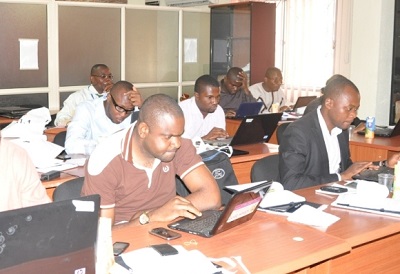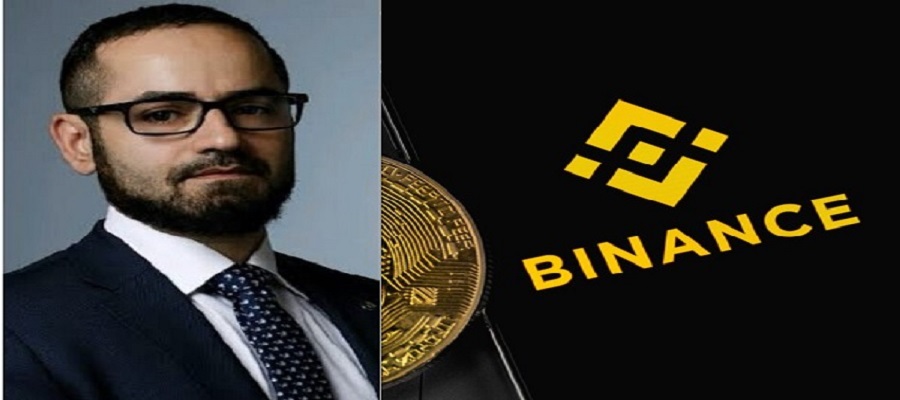News
FG Imposes Tax on Tech Devices, Others

The federal government yesterday granted the Nigerian Copyright Commission (NCC) approval to impose levy on materials capable of being used for copyright infringement in a bid to compensate right owners for the loss that they would obviously suffer from the illicit copying of their works.
But there is something strange about that levy to compensate the victims of a supposed “crime” because in simple language it is a tax on blank media that is supposed to compensate copyright holders for a supposed “loss” from copies made for personal use.
Imagine a levy on devices like photocopying machines, MP3 players, digital juke box, mobile phones, CD recorders, DVD recorders, Blu Ray recorders, computer external hard drives, analogue audio recorders, analogue video recorders, personal computers, printing plates, printers/printing machines, radio/TV Sets enabling recording, camcorders and decoders/signal receivers.
Mr. Mohammed Bello Adoke, attorney-general of the federation and minister of Justice who issued the approval said thatthe Copyright (Levy of Materials) Order 2012, permits the implementation of a regime of levy on some materials capable of being used to infringe copyright.
Adoke said that this was granted in accordance with the provisions of Section 40 of the Copyright Act, Cap C28, Laws of the Federation of Nigeria, 2004.
The section empowers the Attorney-General of the Federation to make an order to be published in the official gazette of the Federal republic of Nigeria regarding the payment of levy in respect of any material used or capable of being used to infringe copyright in a work
The approval, conveyed to Mr. Afam Ezekude, director-general of the Nigerian Copyright Commission (NCC), in a letter reference, NCRC/DSD/10/I dated November 15, 2012, allows the Commission to issue the Copyright (Levy of Materials) Order 2012 by publication of same in the official gazette.
Ezekude indicated that the materials regulated by the levy imposed by the new Copyright Order include storage media like audio cassettes, mini discs, CDs, DVDs, Blu-ray, SD memory cards, video cassettes, USB flash drives, I-Pods and photocopying paper.
Others are equipment and devices like photocopying machines, MP3 players, digital juke box, mobile phones, CD recorders, DVD recorders, Blu Ray recorders, computer external hard drives, analogue audio recorders, analogue video recorders, personal computers, printing plates, printers/printing machines, Radio/TV Sets enabling recording, camcorders and decoders/signal receivers.
According to him, the proceeds of the levy would be payable to a special fund to be created by the Commission in line with Section 40(3) of the Copyright Act.
“The Commission is expected to disburse the funds to beneficiaries who are essentially approved collective management organisations (CMOs) subject to retaining 10 per cent of the collected levy for administrative purposes of agencies that would be involved in the implementation of the scheme”, he stated, adding, “The Order also permits the Commission to retain 20 per cent of the fund for anti-piracy purposes; and 10 per cent for promotion of creativity”, he stated.
The director-general noted that the compulsory levy provision was one of the pro-author provisions of the Nigerian Copyright Act, aimed at controlling acts of piracy and copyright abuses such as excessive photocopying and unauthorised reproduction of copyright works being carried out in circumstances that could not be subjected to voluntary licensing by right owners but which activities undermined the legitimate interests of copyright owners.
Ezekude observed that the lot of Nigerian copyright owners has been adversely affected, particularly with the advent of more advanced reproduction technologies which facilitate illicit copying either for commercial exploitation or for unauthorised private use, thereby denying copyright industries and the nation the benefit of maximizing the revenue derivable from these sectors.
“The new Copyright Levy Order is thus informed by the need to compensate right owners for the loss that they would obviously suffer from the illicit copying of their works, and to maintain an acceptable international standard of protection that would ensure the betterment of the lot of authors,” he stated.
“In order to address concerns of legitimate users of materials which are subject to the levy, and other activities which may not undermine the interest of authors, the new Levy Order provides for the Minister (in this case, the Honourable Attorney-General of the Federation) to exempt any class of materials from the payment of any levy. In addition to such exemption, the levy payable under the new Order does not apply to materials manufactured in Nigeria for purposes of export. Similarly, Institutions that represent persons with disability as may be approved by the Minister are also exempted from payment of the levy”, he added.
The director-general who pointed out that the new copyright Order received inputs of relevant stakeholders in the copyright industries, called on copyright stakeholders and relevant agencies of government to partner with the Commission to actualise the new levy Order.
He assured that as Nigeria was being repositioned to reap the gains of the new transformation agenda, through the proposed reform of the Copyright system recently launched by the Commission, the implementation of the Order would strengthen the economic position of creators, encourage investment, generate revenue for government, discourage piracy and other abuses as well as provide incentive for more creativity.
The approval is coming as most governments around the world are rethinking the copyright levy system because of its controversial nature and some are already replacing it with new system of payment of copyright levies that are charged to the government’s general budget.
The amounts paid as compensation are determined taking into account the harm caused to the author.
News
Binance Chief Insists Some FG Officials, Reps Demand $150m Bribe

Tigran Gambaryan, top official of Binance, at the weekend, maintained his stance on the bribery allegations against some Nigerian government officials and House of Representatives members.

Tigran Gambaryan
Gambaryan insisted Nigerian officials demanded bribes from him despite the denial of the Federal Government.
Recall that Gambaryan, who is Binance’s head of financial crime compliance, was detained in Nigeria from February to October 2024.
Nigerian government said his arrest was part of a broader investigation into alleged money laundering and economic destabilisation attributed to Binance’s activities in Nigeria.
On Friday, while recounting his initial experience on the issue on Twitter, Gambaryan accused some Nigerian lawmakers of demanding substantial bribes in cryptocurrency.
He specifically accused three lawmakers of soliciting a $150 million bribe from him, naming Philip Agbese, Ginger Onwusibe and Peter Akpanke as the three federal legislators who demanded the huge bribe from him to allegedly forestall his arrest and prosecution.
He further alleged that Nuhu Ribadu, National Security Adviser, sought significant payouts from Binance for his political ambition.
But in a swift response, Mohammed Idris, minister of Information and National Orientation, dismissed Gambaryan’s allegations as “outrageous” and “defamatory”.
Idris explained that the Nigerian government had rejected a $5 million offer from Binance intended to secure Gambaryan’s release, opting instead for a more favourable settlement with the US government.
He said Gambaryan’s claims lacked credibility and appeared to be an attempt to discredit Nigerian officials.
But Gambaryan in his latest post on the development on Saturday on his X, said the Federal Government used him as leverage to negotiate a beneficial settlement with the US government.
He wrote, “I was invited by the Nigerian FIU to a meeting in January. Last time I checked, they are part of the Nigerian government. House members also invited us to the meeting. Last time I checked, the legislative branch is also part of the Nigerian government.
“You said the second part was part of a probe? Lol. So when you invited us to a friendly meeting, you even lied about that. I was in a safe house for a month, watching TV, while you were trying to use me as leverage. You then panicked and knowingly charged me with blatantly false accusations.
“So I was released on humanitarian grounds? At least you’re finally admitting the need to release me. Last time you posted, you claimed my health was fine and that there was nothing wrong with me”.
The crypto expert further stated, “You investigated? Yet you didn’t take a statement from me? A person with direct knowledge. What a joke.
“You dragged my name through the mud for the past year with zero evidence against me, nearly killed me, and caused trauma to my family. And now you have the nerve to talk about defamation?
“I’ll put my credibility on the line anytime. In court? You mean like last time, when your attorneys didn’t even show up to the human rights suit in Abuja?
“Get your facts straight. I am done with this foolishness. I said my part. I’ll be off Twitter now since it’s pointless to argue with evil.”
While insisting that his claim was factual despite the denials, Gambaryan added, “What I shared was factual, based on my personal experiences and conversations with those who have direct knowledge of the events I discussed; information that was shared with both Nigerian and US law enforcement.
“So please, allow me to leave this behind and find peace”.
The Binance executive said it was the responsibility of law enforcement agents in both Nigeria and the US to see the investigation into the matter through.
He said he is no longer in law enforcement, adding that the responsibility of seeing this through to a logical conclusion now falls on those still serving in the United States and Nigeria.
He added, “Many requested that I stay on and provide further commentary on the issues I posted about yesterday (Friday). Here’s the hard truth: what I shared was meant to fill in the gaps left by Wired and NPR’s reporting.
“The reality is that last year was incredibly painful for me and my family. I dedicated my life to fighting crime as a Special Agent with the United States Department of the Treasury and as a compliance professional. It was an honour to serve my country and it was a blessing that they came to my rescue and mobilised the full force of the US Government when I was in need.
“Being dragged through court on “outrageous, baseless, and trumped-up charges”, he posited, “didn’t just hurt me but also brought immense pain to my family.
“I don’t want to see my kids cry because I’m not around. I don’t want to see videos of my 75-year-old mother on television in tears. I don’t want to see my wife crying on TV. I want to put this nightmare behind me and move on.”
News
inDrive Unveils Cashless Bank Transfer Feature in Nigeria

inDrive, a global ride-hailing platform operating in nine African countries, has introduced “Light Cashless,” an innovative new payment feature in Nigeria designed to enhance safety and convenience for both riders and drivers.

This solution allows drivers to display their preferred bank details within the app, enabling passengers to copy and paste the information for seamless direct bank transfers—eliminating the need for a traditional payment gateway integration.
By launching “Light Cashless,” inDrive becomes the first ride-hailing platform in Nigeria to adopt this model, reinforcing bank transfers as one of the most trusted and widely accepted payment methods in the country. This feature is now available via the latest inDrive app update and is being rolled out in seven key cities.
This launch brings multiple benefits, including enhanced security by reducing the risks associated with carrying physical cash, greater convenience as passengers can complete payments with just a few taps, and increased financial flexibility for drivers who receive payments directly into their bank accounts without delays or transaction fees.
Additionally, direct bank transfers ensure increased payment transparency, allowing both passengers and drivers to track transactions easily within their banking apps, reducing disputes and ensuring clear financial records.
The introduction of “Light Cashless” aligns with inDrive’s mission to challenge injustice and create a fairer, more flexible ride-hailing ecosystem. The platform remains committed to user-driven innovation, continuously empowering both drivers and passengers with greater control over their ride-hailing experience.
“This new feature is a game-changer for the Nigerian market, where bank transfers are already a trusted and widely used form of payment,” said Timothy, Country Representative at inDrive in Nigeria.
“By eliminating the reliance on cash while avoiding the complexities of integrated payment gateways, we are providing a simple yet effective solution that enhances safety, convenience, and financial efficiency for all users.”
The “Light Cashless” feature is now live in seven major Nigerian cities and will continue expanding across the country. Users are encouraged to update their inDrive app to access this new functionality.
News
TikTok Returns on Apple, Google US App Stores as Trump Delays Ban

TikTok returned to the U.S. app stores of Apple and Google on Thursday as President Donald Trump delayed a ban on the Chinese-owned social media app and assured the tech giants they would not be fined for distributing or maintaining it.

The popular short video app used by nearly half of all Americans went dark briefly last month, before a law took effect on January 19 that requires its Chinese owner ByteDance either to sell it on national security grounds or face a ban.
The following day, Trump signed an executive order seeking to delay the enforcement of the ban by 75 days, allowing TikTok to continue its operations in the U.S. temporarily.
Although TikTok resumed service after Trump’s assurances, Google and Apple kept the app removed from their U.S. app stores.
TikTok, the second-most downloaded app in the U.S. last year, said on Thursday that its latest app was now available for download.
The delay could have been because Google and Apple were awaiting assurances that they would not be prosecuted for hosting or distributing the app, according to analysts.
Trump’s directive said the companies, which run mobile application stores or digital marketplaces where users can browse, download and update apps, would not face penalties for keeping the TikTok app up and running.
TikTok had more than 52 million downloads in 2024, according to market intelligence firm Sensor Tower.
About 52% of its total downloads were from Apple App Store, while 48% were from Google Play in the U.S. last year, Sensor Tower said.
The law that requires ByteDance to sell TikTok’s U.S. assets or ultimately face a ban was signed by then President Joe Biden last April, triggered by national security concerns and fears that China could use the video-sharing app to spy on American users.
The U.S. has never banned a major social media platform and the law that passed last year gives the government sweeping authority to ban or seek the sale of other Chinese-owned apps. Trump said on Thursday that his 75-day deadline on TikTok could be extended.
The turmoil at TikTok attracted several potential buyers, including former Los Angeles Dodgers owner Frank McCourt, who have expressed interest in the fast-growing business that analysts estimate could be worth as much as $50 billion.
Trump has said that he was in talks with multiple people over TikTok’s purchase and would likely have a decision on the app’s future in February.

 News3 days ago
News3 days agoTikTok Returns on Apple, Google US App Stores as Trump Delays Ban

 General News3 days ago
General News3 days agoResearchers Develop Innovative Treatment for Malaria

 E-Financial3 days ago
E-Financial3 days agoAfrican Union Launches Credit Rating Agency to Promote Regional Economic Integration

 General News3 days ago
General News3 days agoNigeria to Host ICEGOV 2025, A Milestone in Digital Governance and Global Leadership

 Broadcasting3 days ago
Broadcasting3 days agoFG Kickstarts Construction of Emerging Technologies Institute in Kano

 Telecom3 days ago
Telecom3 days agoVisa Launches Report on Digital Payment Landscape in Nigeria, Shows Positive Outlook

 General News3 days ago
General News3 days agoMTN Nigeria Foundation Supports Education with Donation of School Supplies to 1000+ Students

 Broadcasting3 days ago
Broadcasting3 days agoFamily Marks one-year Memorial of Late APC Chieftain, Ojougboh with Charity Outreach

















